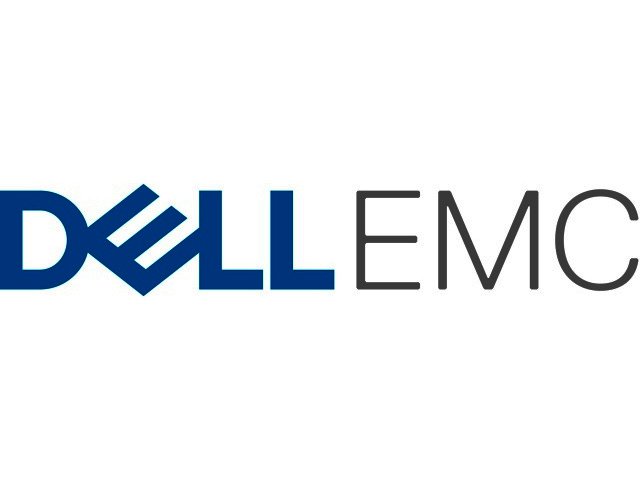By Chris Buchanan, Director of Client Solutions at Dell EMC
In 2002 the Johannesburg Stock Exchange adopted SETS, the London Stock Exchange’s flagship electronic order book. When a 2013 research paper studied the impact of this, it found the JSE was more liquid, had doubled its trade and lowered trading costs. There is no doubt that good technology has an incredible impact on the fast-moving yet nuanced world of financial trading.
Modern-day financial trading floors are a far cry from the noisy, frantic telephone-centred scenes of the 1980s. Significant upward trends in computing, data distribution and automated trading techniques have placed IT at the core of these environments. Trading floors are now dynamic hotbeds of IT innovation, where latency is king, and where even a few minutes of downtime can result in multi-million dollar losses. At the New York Stock Exchange, computers even have the exact same cable lengths so one doesn’t beat any others by being a little shorter and therefore faster to the mark.
But this is placing IT management teams under intense pressure to ensure operating environments are perfect. Whether performing maintenance, patching vital software updates, carrying out regular moves/adds/changes (MACs) according to traders’ requirements or ensuring processes are compliant with ever-changing security regulations, these teams have their work cut out.

Chris Buchanan, Director of Client Solutions, Dell EMC
With these unique challenges, organisations can benefit from Virtual Desktop Infrastructure (VDI) - the practice of hosting a desktop operating system within a virtual machine running on a centralised server, with users accessing this virtual environment through any endpoint device. When assessing how best to adapt their IT strategy there are a number of areas financial trading houses should consider:
Workforce transformation
The first of these is IT management. On a trading floor, MACs - a set of tasks that IT teams regularly perform to keep computing equipment up-to-date and aligned with user requirements – happen continuously. With traders regularly relocating and demanding ever-so-slightly different configurations of hardware and software – IT teams can find themselves on a carousel of moving parts, each one scrutinised.
The prevalence of multiple devices and mobile working compounds this challenge – laptops must be kept up to date and software applications patched to mobile devices so that trades can be executed on the move. For many financial institutions, this array of devices often includes multiple PCs per trader – sometimes one per monitor – which must be moved and managed individually.
With VDI, workstations are moved to the datacenter and can be replaced by location-agnostic thin clients, which are centrally configured, eliminating the need for a member of the IT team to visit the user’s desk. Utilising thin clients improves reliability and, in the case of MACs, enables immediate reconfiguration, getting the trader back online and sustaining invaluable uptime. For this reason, organisations such as Kotak Securities have implemented thin clients in order to benefit from the devices’ secure, high performance capabilities, and reduce the IT management burden.
Application deployment
Software deployments present another significant challenge for IT. Traders use customised application sets for news monitoring, price analysis and communication, amongst a range of other purposes. Deploying and updating these manually, across the myriad of devices, is time-intensive and adds further weight to the IT management workload.
With virtual desktops, all software deployments and updates are administered centrally, enabling the complex web of applications to be coordinated from a single system. Not only does this reduce time spent “keeping the lights on”, but also enables IT teams to focus on innovation. In a world where IT innovation can lead to millions in additional revenue, this is a significant ‘value-add’.
Security and compliance
Amongst the IT management issues regularly faced by financial institutions, security is also close to the top of the list. As data protection regulation continues to tighten and malware techniques become more varied, monitoring endpoints and storage methods becomes a business necessity.
For trading houses handling market-sensitive information, this level of protection is nothing new. Many organisations already utilise virtual desktops to remain aware of where their data resides and how it is communicated both internally and externally. With all data held in the datacenter, information is secure, and reporting/auditing is more straightforward.
The threat of malware is, comparatively, a new challenge. For traders on the move, even when operating in a virtualized environment, it is essential to keep endpoints safe from would-be hackers. To do so, organisations can patch embedded endpoint security software. This additional layer of threat protection ensures vital information is kept safe and is easily managed across all devices.
Energy consumption
The final challenge for financial trading houses seeking to get more from their IT is its impact on energy consumption. In terms of building regulations, many of the world’s financial offices are already maxed out in terms of energy usage, not least because datacenters are often housed on site. Moving workstations to the datacenter and replacing with low energy consumption desktops, such as thin clients, has a significant impact on power consumption, and air-con demands. VDI also enables more straightforward integration of hybrid cloud storage techniques, again, removing power-intensive datacenter components from the building.
VDI is helping the financial sector to overcome some of its core IT challenges. Through centralized client management across a range of devices, companies no longer have to dispatch technicians to traders’ desk or to remote deployments. Traders are not disrupted, and IT personnel can execute repairs and software upgrades in minutes rather than hours. This frees up time for IT innovation, all while ensuring vital data is kept safe.
To ease the regulatory and budget pressures facing IT departments across the finance industry, VDI is a safe bet.





